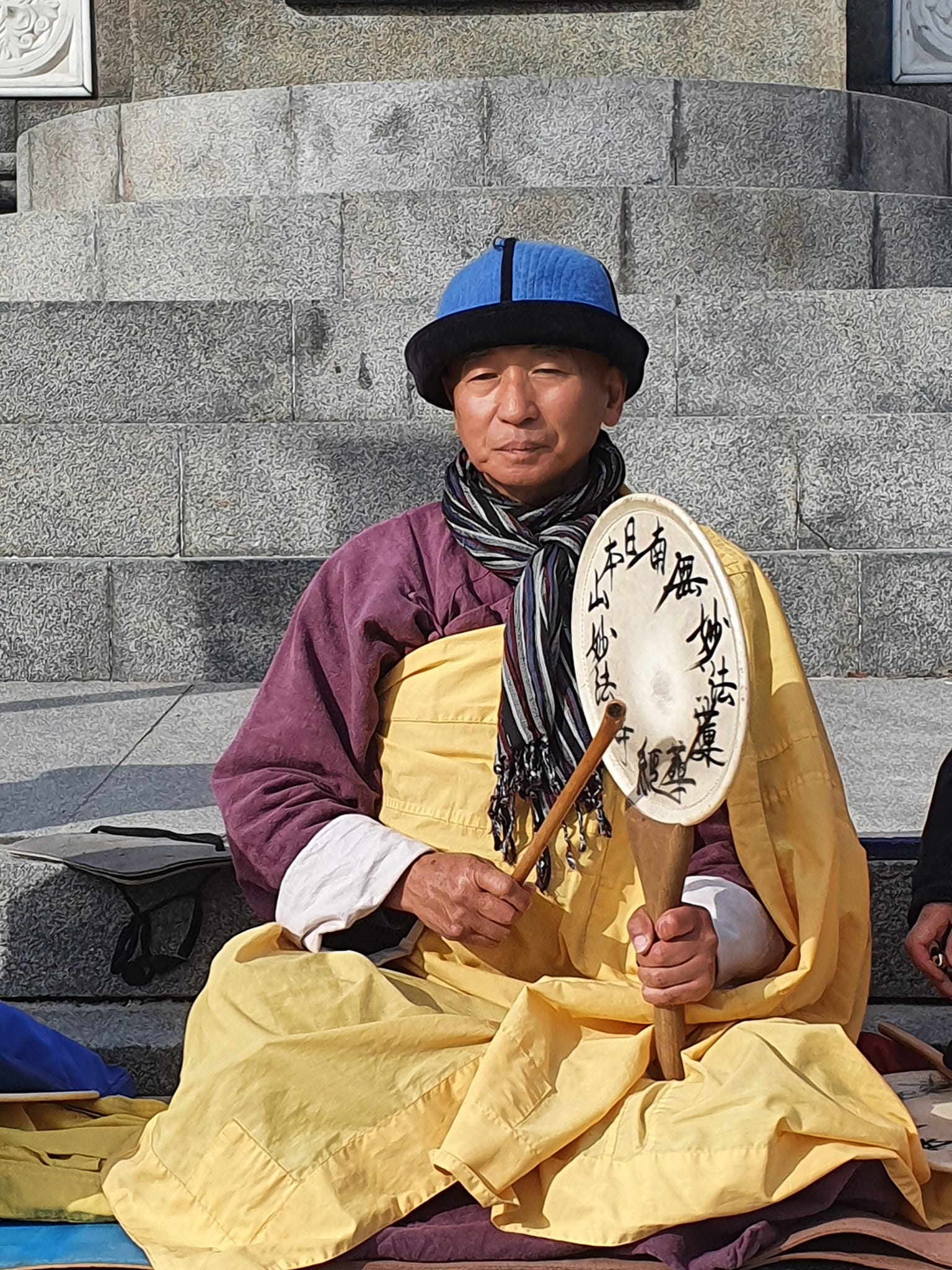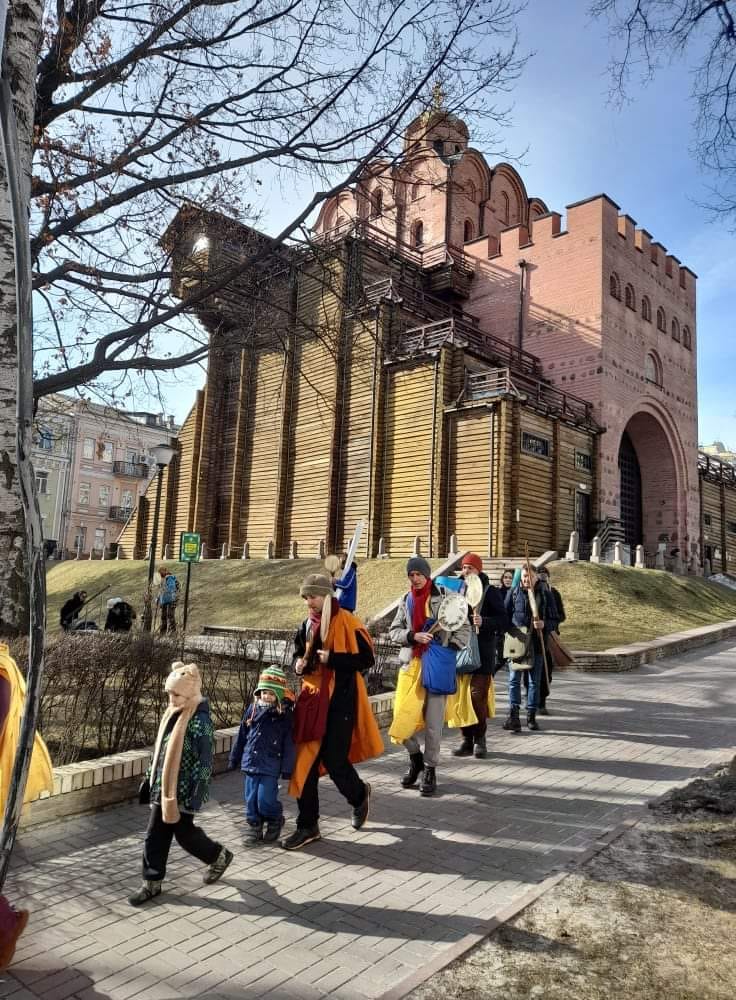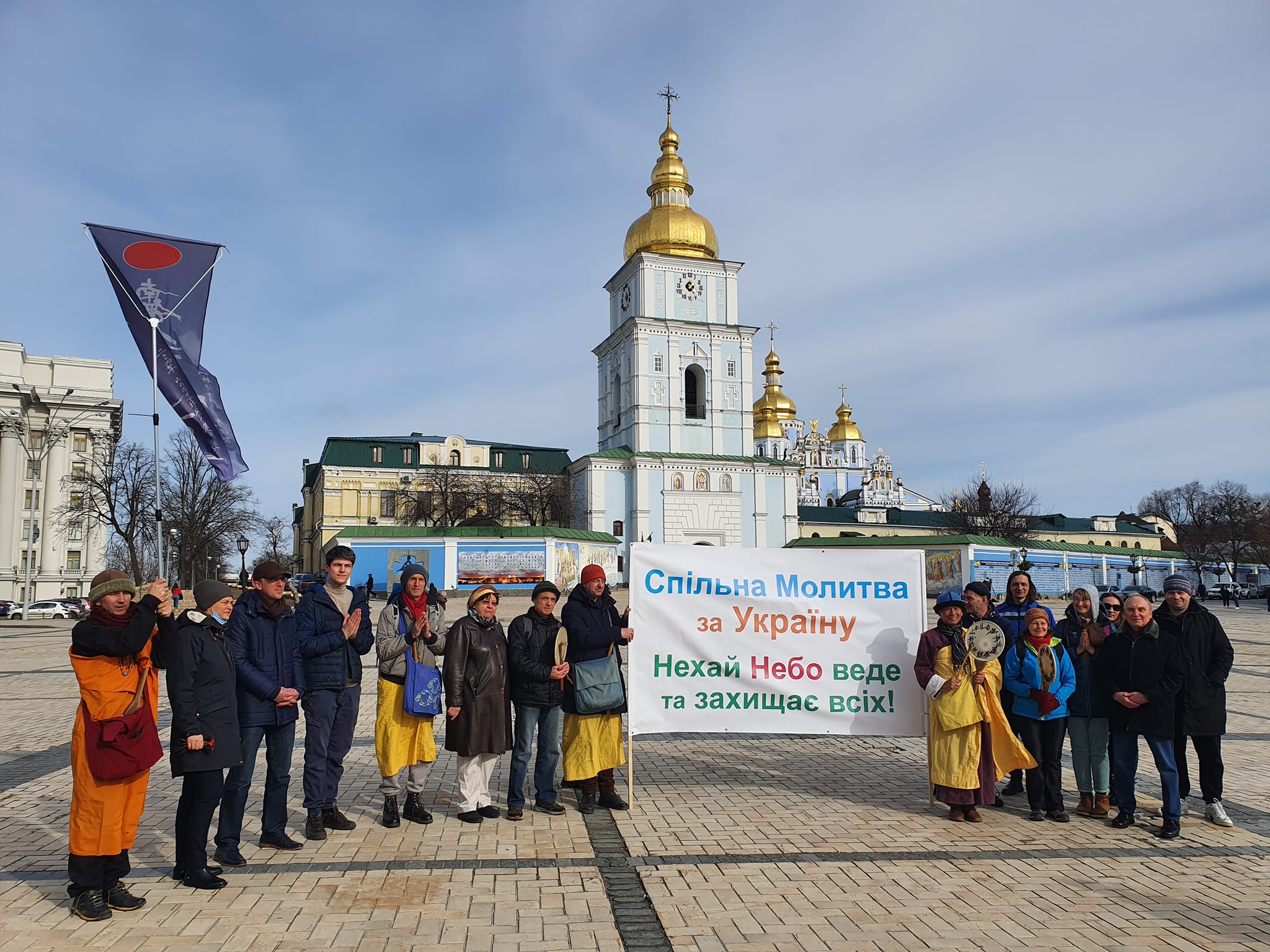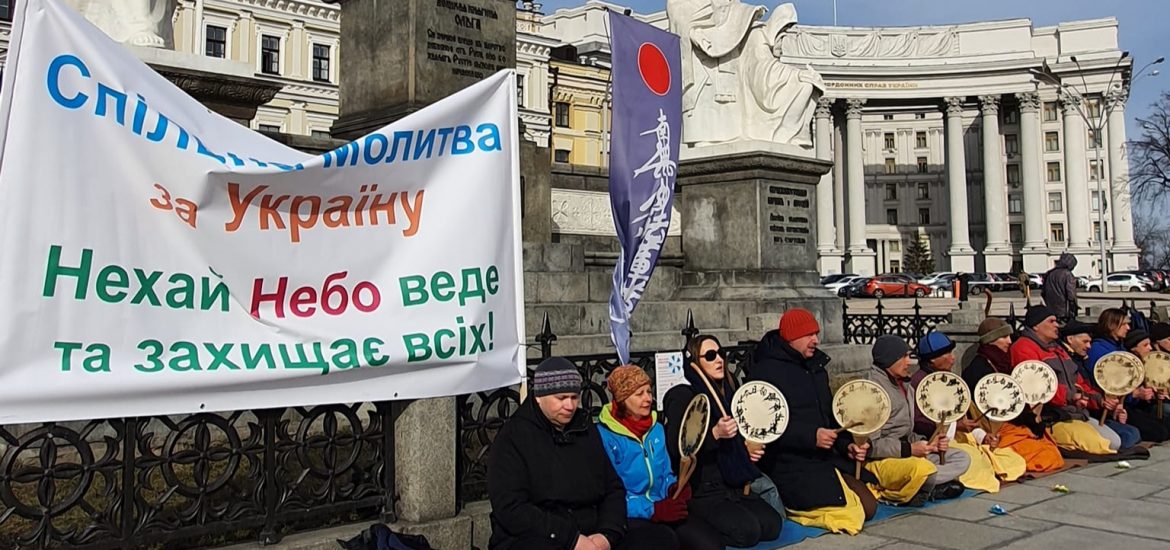Shortly before the Russian invasion of Ukraine, a small group of Buddhists, affiliated with the Nipponzan-Myōhōji-Daisanga, gathered in Kyiv’s majestic Mikhailovska Square to pray for peace, chant the Lotus Sutra in the Nichiren tradition of “Namo myoho-renge-kyo,” and call for an end to Russo-Ukrainian hostilities. The Nipponzan-Myōhōji-Daisanga is a Nichiren-aligned movement founded in 1917, consisting of less than 2000 members but with an outsize role in pacifist and peace movements around the world.
Leading this small group in Kyiv was Junsei Terasawa (b. 1950), the first monk of his order to be active across Eurasia, from the Central Asian countries to Russia and Eastern Europe. The upheavals and politics of the 20th Century are not new to him, and he has been active in peace movements from London to Kyiv, while also building a multicultural sangha of followers of many cultures and ethnic backgrounds, many of them Indian, Central Asian, and East European.

In the past fortnight, he led his small community to chant before the square’s Princess Olga Monument, a penultimate pitstop on a 20-day vigil of peace through Kyiv. The vigil had been going smoothly throughout February’s build-up of Russian troops along the Ukrainian border. But by the 21st day (24 February), the sangha could no longer reach the city center. Denied taxis and buses, and facing huge traffic jams in and out of the capital, Junsei Terasawa took the bold, decisive, and courageous step of shifting operations and religious practice immediately to the Carpathian Mountains in West Ukraine.
As of now, Junsei Terasawa and his community have departed from Kyiv on a small bus, with an entourage of 11 people, four of them children. They will be traveling 700 kilometers to the Carpathians, where Junsei Terasawa built a temple called Bodhimandala several years ago in preparation for a wartime situation like the present moment. The violence is sadly underway, with the broader geopolitical and economic fallout unknown to perhaps everyone.

As he told Credo.Press, a Russian-language news portal, in an interview shortly before leaving Kyiv: “We knew this was supposed to happen, 20 years ago, and the world couldn’t resist such the development of events. Of course, the direct cause of what is happening is Putin, but also throughout the world during the transformations after the collapse of the Soviet Union, people and their leaders did not show true wisdom in order to change the future of all humanity. Such is the reality of what happened today’s failure.”
“Now we are at the heart of the conflict, and I hope it does not unfold before a full-scale world war, although something unthinkable has already started to happen, and everyone should pray and act with a brand-new vision,” he continued. He advised an immediate cease to hostilities, while proposing a broad new vision of what must come: a transformation of consciousness. “All humanity must be saved. Now is not the time for empty mind games. We all need to admit our [existential] defeat together and gain a whole new vision, if it is not too late and if the world can survive this disaster.”

Regardless of geopolitical alignments, alliances, and allegiances, the priority for all Buddhists should be to pray for the minimization of life, especially civilian casualties. As Junsei Terasawa said to Credo.Press: “We will continue to pray there for the nature and land of Ukraine, as well as for people to wake up everywhere: in Ukraine, in Russia and around the world – and that the secret divine wisdom will lead us all together in this difficult time.”
The peacebuilding philosophy and techniques of Junsei Terasawa’s community, the Nipponzan-Myōhōji, and indeed all of the Nichiren tradition and the broader Buddhist order will be critical to providing some degree of comfort and hope to civilians, Ukrainian and Russian alike, in the coming days, weeks, and months.


